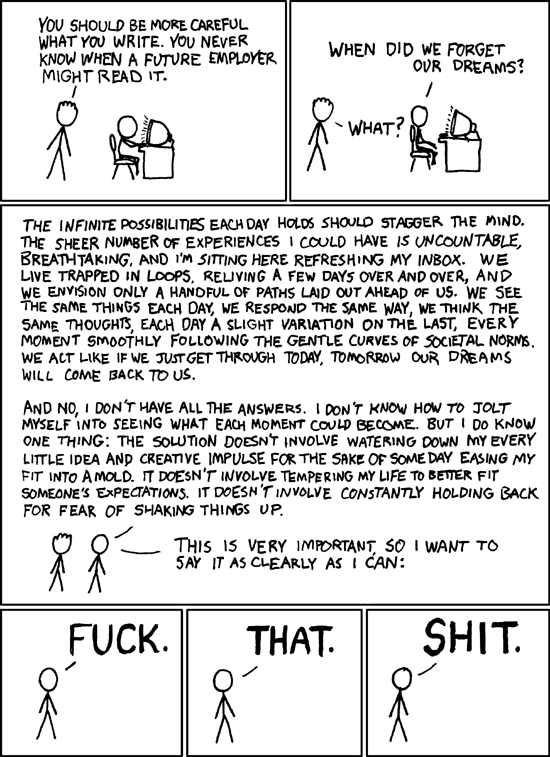Aristophanes was a Greek dramatist and Athenian playwright who is often referred to as the Father of Comedy. Lysistrata Jones is a modern take one of his plays, and I attended the Broadway production last night.
It was a real treat to see talent across disciplines (singing, dancing, acting, etc.) in one place. The show was fantastic, and I hope you can catch it (shouts out to Shelah for making it possible).
During my time in the bowels of the corporate beast, I rarely saw anything resembling passion. Now that I’ve changed gears a bit professionally (understatement of the year?), I’m pleased to see inspiring stories of passion and dedication and purpose and conviction all around me.
I especially enjoy seeing artists pouring themselves into their work and not making excuses, so it’s always disheartening to see people with obvious talent (like, say, graphic design) sharing their work while simultaneously playing down their efforts with statements like, “This is just something I put together when I was bored at work.”
Is that the best we can do?
Starring on Broadway isn’t every performing artist’s goal, but it certainly represents a milestone in the career of someone on that path. It is unlikely that they reached their goals by casually auditioning over the years and making excuses as to why they weren’t fully committed to their craft.
The actors on that stage were singing the soundtracks of their lives, doing all the right things, and serving as an inspiration to artists who ship and courageously chase after their dreams.
Fun fact: two of my colleagues from The Domino Project were musical theater majors.
